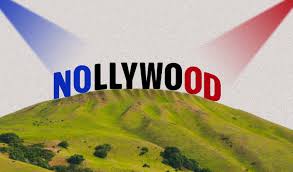
Photo credit: The Guardian Nigeria
Cinema, also known as the film industry or the motion picture industry refers to the art and business of creating, producing, and exhibiting films for entertainment purposes. It is a form of visual storytelling that combines various elements, including acting, directing, cinematography, editing, sound design, and visual effects, to create a narrative or convey emotions and ideas to the audience.
Cinema in Nigeria, often referred to as Nollywood, holds a unique and significant position within the global film industry. Here are some key points about cinema in Nigeria:
Nollywood: Nollywood is the third-largest film industry in the world in terms of film production, surpassing Hollywood in terms of output. The term “Nollywood” was coined to describe Nigeria’s vibrant and prolific film industry, primarily centred in Lagos. Nollywood produces a large number of films, mostly in the English language, but also in other Nigerian languages.
Low-Budget Productions:
Nollywood films are known for their relatively low budgets and quick production turnaround. Filmmakers often work with limited resources and tight schedules, resulting in a distinct style and aesthetic. This DIY approach has allowed Nollywood to thrive and produce a significant number of films each year.
Themes and Storytelling: Nollywood films often focus on themes that resonate with Nigerian and African audiences, including family dynamics, romance, comedy, social issues, and traditional beliefs. The stories reflect the cultural diversity, traditions, and contemporary realities of Nigeria and other African countries.
Distribution and Market Reach:
Nollywood films have a strong domestic market that is widely distributed across Nigeria and other African countries. They are accessible to a broad audience through various distribution channels, including cinema screenings, DVD sales, television broadcasts, and digital platforms.
Impact on African Cinema:
Nollywood has had a profound impact on the African film industry as a whole. It has inspired and influenced filmmakers in other African countries, leading to the emergence of similar industries such as Ghollywood (Ghana) and Riverwood (Kenya). Nollywood has played a crucial role in shaping the identity and growth of African cinema.
Technological Advancements:
Over the years, Nollywood has embraced technological advancements in filmmaking. The industry has transitioned from shooting in analog formats to digital production, resulting in improved quality and efficiency. Digital distribution platforms and streaming services have also provided new avenues for Nollywood films to reach global audiences.
International Recognition:
Nollywood films have gained international recognition and have been screened at film festivals worldwide. Nollywood filmmakers have received accolades and nominations at prestigious events such as the Africa Movie Academy Awards (AMAA) and the Toronto International Film Festival (TIFF). The global reach of Nollywood has contributed to the growing visibility and appreciation of African cinema.
Job Creation and Economic Impact:
Nollywood is a major source of employment, providing opportunities for actors, filmmakers, technicians, and other industry professionals. The industry has also contributed to Nigeria’s economy through revenue generation, job creation, and tourism, as Nollywood films attract audiences from within and outside the country.
Cinema in Nigeria, represented by Nollywood, has revolutionized African filmmaking. It showcases the creativity, storytelling prowess, and entrepreneurial spirit of Nigerian filmmakers. Nollywood’s influence extends beyond Nigeria, making it an integral part of the global film industry and contributing to the cultural and economic development of the country.
What is your thought on this story?
Kindly like and share now.





















